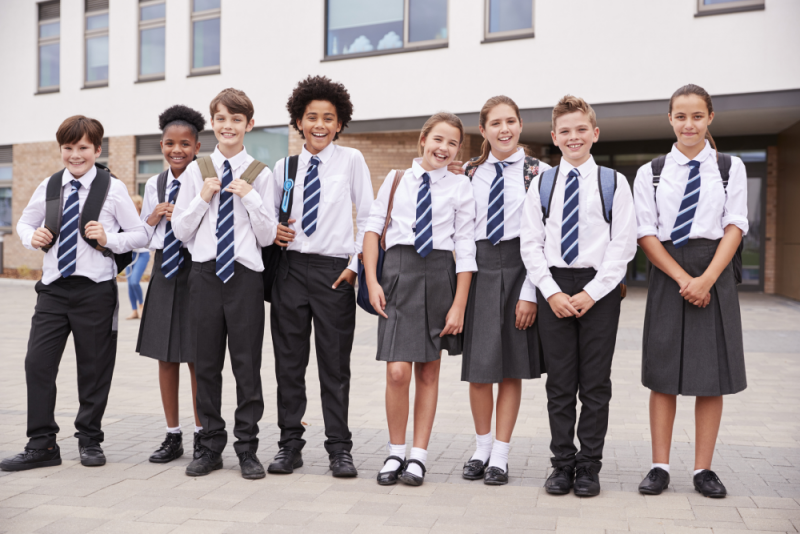Are you seeing unusual behaviour patterns emerging post lockdown? Adele Bates reflects on what she and other practitioners are witnessing, possible causes and solutions.

I’ve started and re-written this blog post a couple of times because it seems that every time I think I have found a pattern in the behaviour we are experiencing from our pupils… another school/pupil/interaction proves my pattern wrong!
Instead I want to summarise what I am seeing and working with, and explore whether the claim that behaviour is ‘out of control’ is a fair measurement – because the one thing that does seem to be a pattern, is that while each school has been heads-down-working-it-out, there’s been very little time to come up for breath and learn about how we are doing collectively.
There are many pupils who we feared would self-combust at the experiences they have been through in the past 18 months, and yet they have kept on going, found ways of adapting (sometimes without the help of staff) and have continued with academic learning throughout.
In some ways surprising, we have seen many pupils with SEMH or who have experienced Adverse Childhood Experiences (ACEs) shine. Their already existing resilience and history of necessary adaptation has meant that they can treat the pandemic as just another situation out of their control, which sadly they have known before.
There’s a growing concern around mental health difficulties; one of the signs we’re seeing is an increase in worrying and unusual behaviours.
One pattern I have observed is a negative change in the behaviour of more conscientious pupils – perhaps those who believed that exams were the be all and end all, and have seen that framework being pulled from underneath them, leaving little structure and a huge loss of faith.
I have supported parents in despair who, for the first time, have had the school contact them due to ‘challenging behaviour,’ refusal or worryingly concerns around self-harm, depression or other mental health issues.
Thanks to the stark categorisation and bias that can happen in our schools around behaviour, this leaves a fear of how the pupil is now being labelled, and therefore what kind of support they will be offered.
Of course there are many schools and alternative provisions that never closed at all. Working with one such school recently, whose curriculum provision is all based around life and functional skills with no exam component anyway, reported to me that the pupils just continued. They were re-arranged into bubbles, which caused some challenges around routine.
However, they found that it was harder for the staff to re-adjust than the pupils.
One of the most frequent patterns I have seen is schools for whom behaviour is usually not an issue, start to find out what it’s all about. The types of schools where even mentioning behaviour is more of a tick box exercise – the focus is always on the learning.
It can feel shameful if we’re ‘not coping’ – but until we can name that, we can do little to start re-building in a sustainable way.
In many of these settings there are an increasing number of pupils whose behaviour is becoming challenging. Alongside this, the staff working in these schools are unaccustomed to supporting behavioural needs and, being exhausted themselves, often fall back on reactionary and punitive strategies that escalate issues.
In the schools that I’m supporting, I’ve introduced concepts such as behaviour as communication, restorative practice and long term support and prevention, so that staff have tools to utilise and teams to support them moving forwards.
Sadly, I have also been working in schools, usually ones with a particularly high number of pupils with an EHCP or diagnosed as SEMH, who have become completely destabilised.
In many cases, the suspicion is that alongside educational disruption, pupils have experienced additional trauma during the lockdown, but due to the challenges we now face with disclosures, we may not have concrete knowledge of this. The result is a pressure cooker of potentially violent and de-regulated pupils being supported, once again, by exhausted and anxious staff. The effects of Covid-19 feel long term.
At this stage, alongside our countdown to the end of term, I encourage us all to discuss behaviour with one another – across settings, age groups and learner types. One flailing headteacher I worked with in an alternative provision had not realised that some mainstreams had also been affected so negatively – just hearing that they were not alone in the experience provided some comfort. It can feel shameful if we’re ‘not coping’ – but until we can name that, we can do little to start re-building in a sustainable way.
If behaviour is ‘out of control’ we need to share together what is working in our classrooms, and support one another when it’s not. That way, slowly, we will find lasting solutions to the challenge of positively supporting our pupils’ behaviour – and therefore learning – for the long-term.